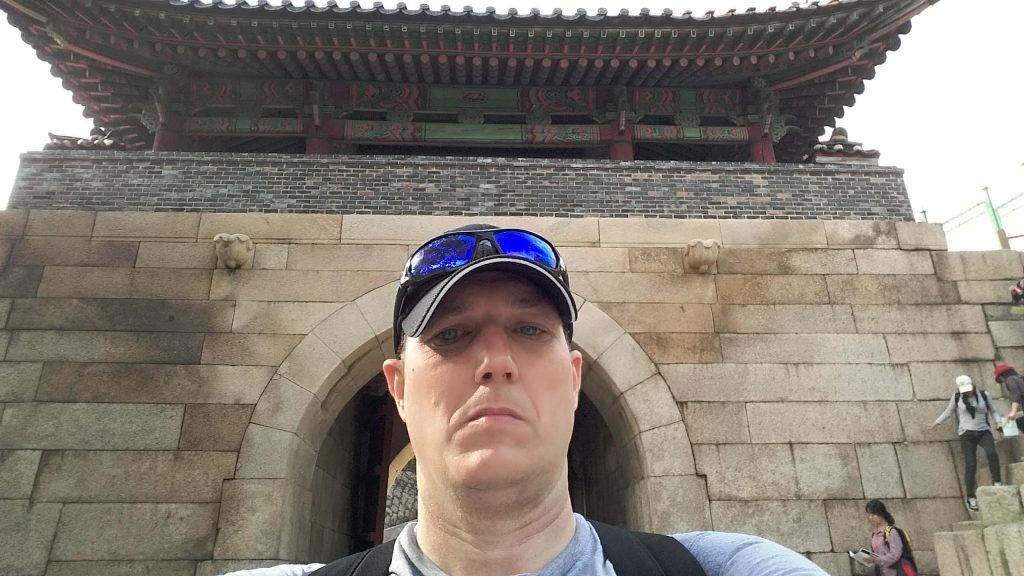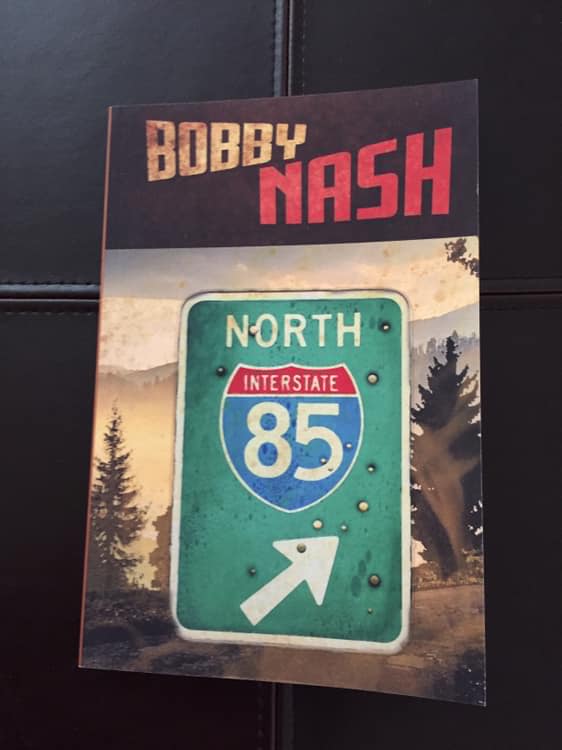
A few questions for Bryan Batson — his bio is at the end of this article.
What inspired you to write poetry?
I almost can’t remember when I didn’t write poetry. This is a bit of a convoluted answer, but it actually highlights a bit of my character. I grew up in a relatively poor family on a small farm about 20 miles outside Nacogdoches, Texas. My family had a band that played Country and
Western and Gospel Music. When I was a little boy, I was asked what instrument I wanted to learn. I responded with “bagpipes”. My parents did not find that acceptable and voiced their disapproval. Being the hardheaded farm boy I was, I refused to learn anything else (though I did strum a guitar on occasion). However, if you find yourself constantly around jam sessions, you pick up meter, rhythm, rhyme, timbre, melody, harmony, form, texture, and dynamics whether you want to or not. Over time words became my instrument and poetry became my medium. Where my brothers got attention for their amazing musical talents, I would be sitting at a table or in a pew, scribbling lines in iambic pentameter while I sang along.
Who is your favorite poet, and why?
This is particularly hard. I’m very eclectic in my preferences for poetry. I’m truly all over the place. I grew up on lyric poetry, but I’m an omnivorous consumer of poetry. My favorite poem is Rudyard Kipling’s “If” — I routinely share it with my son as it has great meaning on balance and self-worth that is useful for a man finding his place in the world. I can quote (and misquote) Robert Frost and Langston Hughes pretty much at will. I enjoy biblical poetry as well as the bits of Quranic poetry that I know. I think the most impactful group of poets in my life are Ahrens, Altman, Brick, Dorough, Drewe, Fishberg, Johnson, Mandary, Mendoza, Newall, and Yohe (collectively SchoolHouse Rock). I’m 48 and I can quote every one of their lyrics verbatim. It is amazing how far some SHR will get you in life. I believe aphorism is a type of poetry. I love when wordplay is like swordplay. I capture well-turned phrases for later use. You’ll find a lot of Sam Clemens (Mark Twain), Churchill, and classic Greek poetic aphorism in what I write. I love the Song of Roland, Beowulf, and a lot of Shakespeare. I like classic epic poetry and the idea that the same lines I read and feel today have been shared for eons essentially unaltered. It strikes a chord with the historian in me. I’m also fond of folk poetry — the common person standing against the powers that be (which is ironic considering my profession). In my heart, I’m a romantic poet, and I love romance poetry most of all. Poetry was made for wooing. I believe this in my soul. As a result, I think my favorite poet is a tossup between George Gordon Lord Byron and Shel Silverstein. I don’t know why but I’m drawn to the true romantic poet and the broken romantic poet. I love that Lord Byron was a man of action and died following his beliefs (while also a noble and a cad). The same man that wrote “She Walks in Beauty” died fighting in someone else’s war because he thought it was both the right and the adventurous thing to do. I love the beautiful brokenness of Silverstein and the crazy complexity of being both a children’s author and a contributing author to Playboy. I go back and reread his works from my youth and realize that they are much darker with adult eyes. I also want to put in a plug for Sea Chanties — I love every Sea Chanty ever (I’m listening to The Hollow Points “Pieces of Eight” as I write).
Do you have formal training in writing poetry?
Not really — I took a couple of creative writing classes in college. I have taken (and teach) courses in military writing. The closest thing I have to real instruction in poetry writing is that I was semi-adopted by my high school teachers and school administrators. When things were pretty chaotic in my home life, those guardian angels at Nacogdoches High School kept me from wrecking my life. It was a deep personal investment from a group of teachers that helped me become everything I am today. My high school graduation party was thrown in the breakroom by the counselor’s office. The staff gave me a bible they all signed. I’ve read it until its falling apart, but it is one of the most precious things I own. I have a love of learning that
guides my study of poetry.
Does the act of writing poetry bring you comfort or grief?
Poetry can come from a place that can do either. It depends on what stimulates the moment of writing. For me, the process usually starts with a trigger. If it’s a traumatic trigger, I’m likely to express grief. I read or hear something that requires a response from me. I can force myself to write, but that is usually less effective initially than what gets produced in the organic,
spontaneous fashion. After I have it on paper, then I transition to a more formal editing process. I determine meter and validate word choices. I also deconstruct the story and reassemble it as required to build tension. In some ways, the process of poetry sausage-making does cause me grief but the end product provides me great comfort even when the topic is dark.
What advice do you have for a person that is new to writing poetry?
It is funny, but when I read this question I immediately responded in verse. Sometimes I feel like I’m living in a Monty Python sketch…
Read a lot on a variety of topics. Get swept away in mundane times.
Ever expand your vocabulary. It’s the only way to find tricky rhymes.
Let your heart out of your ribcage. Put sweat and blood in every line.
Show honesty and compassion always. Just be human and you’ll be fine.
How are you going to pursue the publication of a collection of your poetry?
I have no good answer to this question. I don’t know that I am doing anything other than contributing to Poets to Save America at this moment. For the majority of my life, I have dabbled in creative writing, mostly in poetry. While I’ve dreamed of writing something that the public adores, I lack the talent, motivation, or industrial understanding to make the dream real. While I write my magnum opus one couplet at a time, it is the process that makes me happy. The act of writing makes me whole. I’ve no idea how to monetize that. I really hope that doesn’t sound pretentious. It is honestly the best answer I have even if it’s a bad one.
Biography:
Bryan Batson is an active duty Lieutenant Colonel in the US Army. He currently serves as an Assistant Professor and curriculum author teaching the Advanced Operations Course for the Department of Distance Education of the Command and General Staff College at Fort Leavenworth, Kansas. Bryan has been in the Army for 24 years and served 13 months in the National Guard while in college.
Bryan received a Bachelor of Arts in Military History with a Minor in Leadership from Stephen F. Austin State University in 1994. He has a Master of Arts in International Relations from Webster University from 2008, a Master of Military Arts and Sciences in Theater Operations (Operational Art) from the School of Advanced Military Studies, and is currently working on his terminal degree, a Ph.D. in Security Studies from Kansas State University.
Bryan has multiple overseas tours — 2 iterations to Bosnia; 3 years in Iraq including a Headquarters and Service Battery Command during the 2003 invasion, a year as a military advisor to the Iraqi 30th Brigade, and a year as the lead military planner for the US Embassy; a year in Afghanistan as the Chief of Coalition Force Management for the ISAF Joint Command; and a year in South Korea as the 8th Army Deputy Fire Support Coordinator and Chief of Targeting.
Bryan is married to Laura Horne Batson (nee Laura Gayle Horne) who is the Director of Teaching and Learning for the Leavenworth, Kansas School District. They have two children- Will, a Pharmacy Doctoral student at the University of Kansas, and Megan a Freshman at Barton College.
Bryan Batson is a frequent contributor to Poets To Save America, a project of the Sangria Summit Society.

